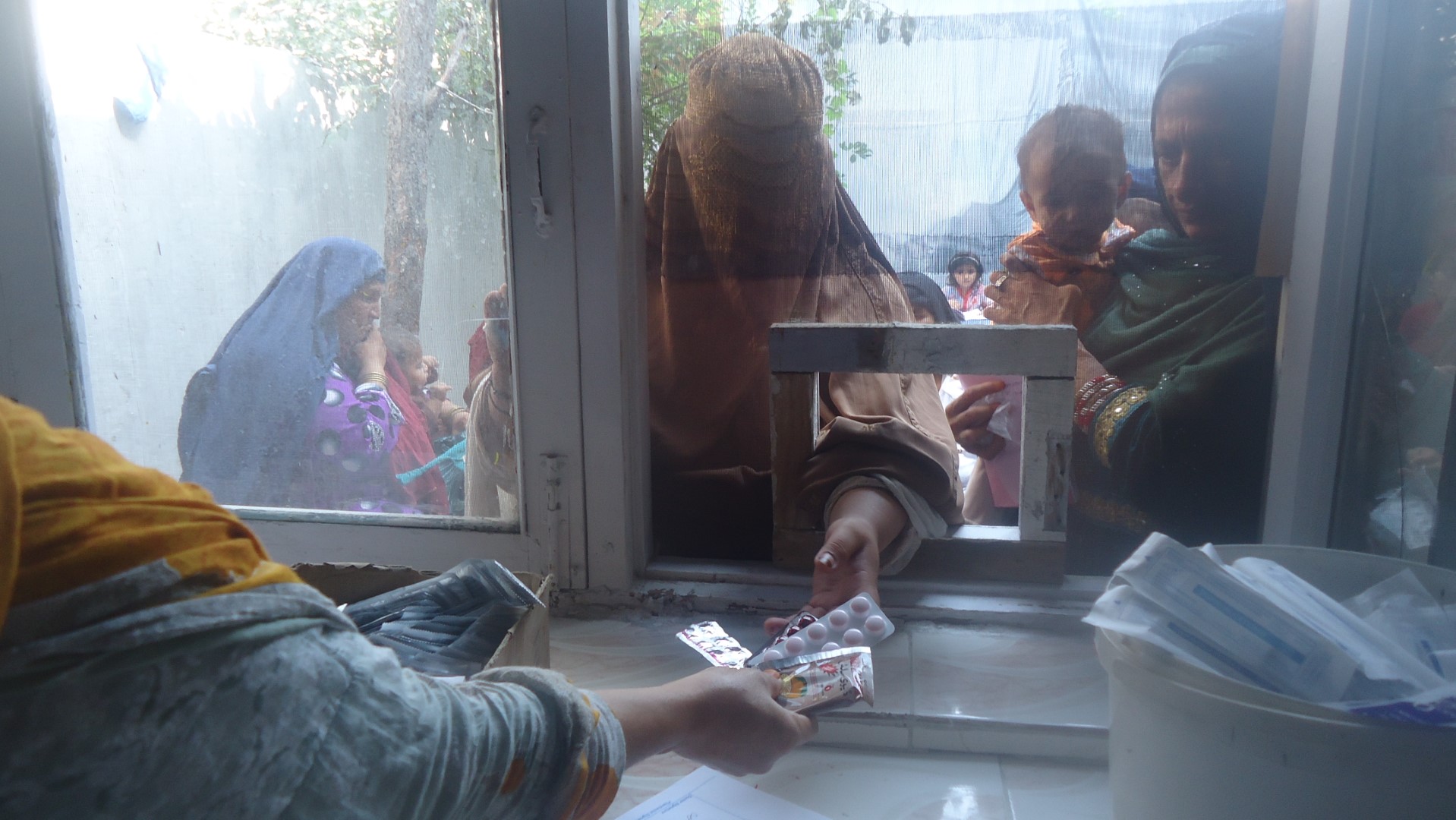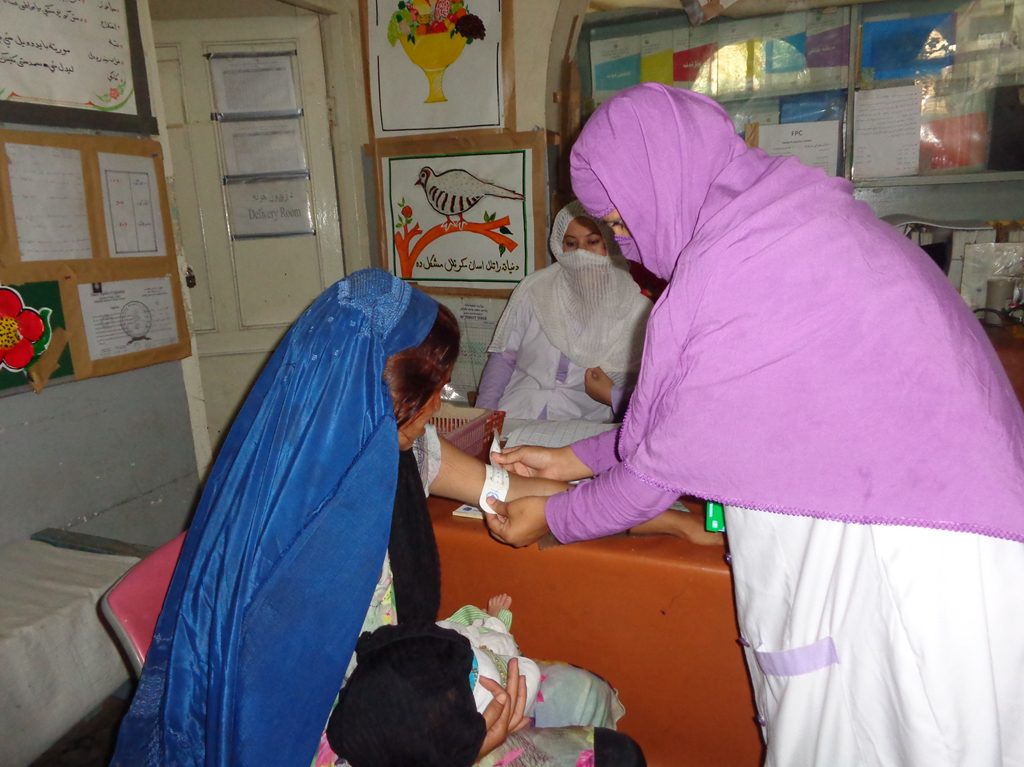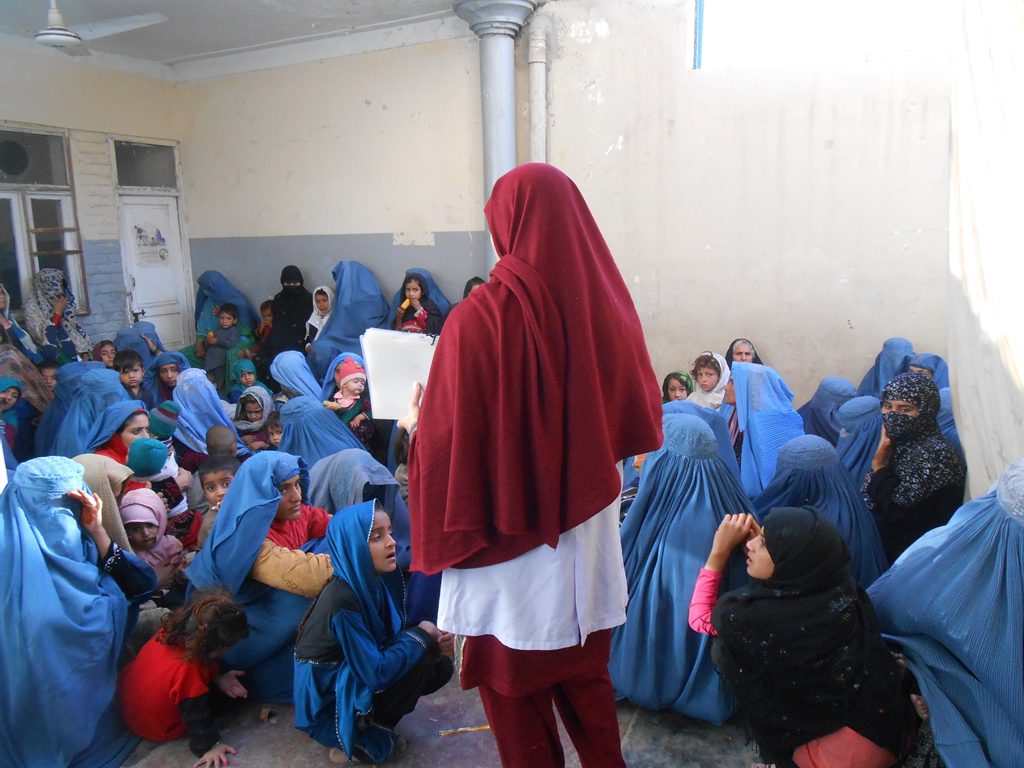
Afghanistan
Providing quality reproductive health (RH) services for pregnant and lactating women
| Country | Afghanistan |
|---|---|
| Project Strengths | Reproductive health services friendly to women |
| Implementing Partners | United Medical Centers for Afghans/Rehabilitation Program for Afghanistan (UMCA/RPA) |
| Supporting Agencies | Donations from individuals and corporations |
| Project Period | Jan. 2012 – |
Description of SRHR Needs
-
In Afghanistan, about 1 in 2 women give birth at home and maternal mortality ratio (MMR) is estimated at 396 deaths per 100,000 live births (The State of World Population 2016).
-
Health system strengthening continues to be a key factor to promote reproductive health of women in Afghanistan where lengthy civil wars had destroyed a number of health facilities and lack of female health personnel has been of great concern.

JOICFP’s Intervention
| Goal | To improve access to quality RH services and information for women |
|---|---|
| Target Area and Population | 10 villages in the Zone 4 of Jalalabad city, Nangarhar province (population: 34,000) |
| Uniqueness in the Approach |
|
| Activities |
|

Project Outcomes
- In 2016, 25,300 women, including pregnant and lactating women, and children received primary health care and/or reproductive health services the Maternal, Newborn and Child Health Clinic supported by JOICFP. Health education on RH topics has also been provided to 19,200 women who visited the clinic.
- In 2016, 442 teachers of 13 schools were trained as a health educator and provided 22,850 students with health education sessions on topics such as hygiene, prevention of diarrhea and infectious diseases.

